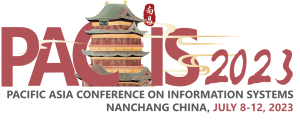Abstract
Energy poverty is a pressing societal challenge, affecting over 700 million people worldwide, particularly underserved communities. Although information systems (IS) resources have been made available to alleviate energy poverty, realizing their effective use for intended impacts remains challenging. In this ongoing research, we adopt a resourcing perspective to explore how IS resources can be effectively used to alleviate energy poverty in underserved contexts. We present a community case study in Lusaka, Zambia, where the effective use of IS-based Energy Systems (IES) has yielded promising results. We develop an initial framework that explains “what it takes” to realize effective IES resourcing for energy poverty alleviation, including mechanisms (i.e., gap spotting, narratives, and scaffolding) and actors (i.e., resource providers and users) in three stages - resourcing IN, resourcing WITHIN, and resourcing OUT. We also indicate the next steps of this study and expected contributions and discuss implications for future research.
Recommended Citation
Zhang, Xinyue; Pan, Shan; Tim, Yenni; and Wu, Lei, "Leveraging IS-based Energy Systems for Energy Poverty Alleviation in Zambia: An Interpretive Case Study" (2023). PACIS 2023 Proceedings. 49.
https://aisel.aisnet.org/pacis2023/49
When commenting on articles, please be friendly, welcoming, respectful and abide by the AIS eLibrary Discussion Thread Code of Conduct posted here.



Comments
Paper Number 1271; Track Sustainability; Short Paper